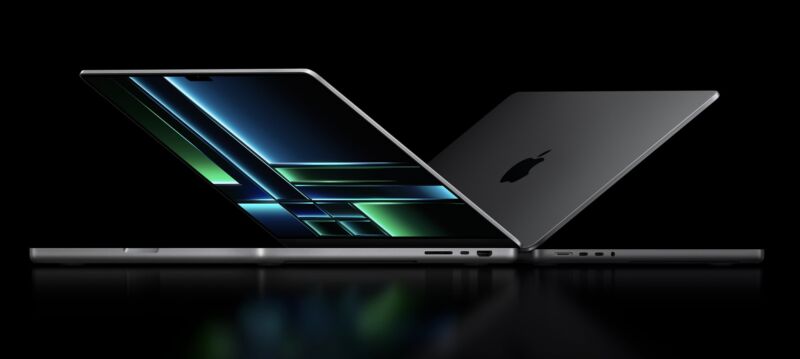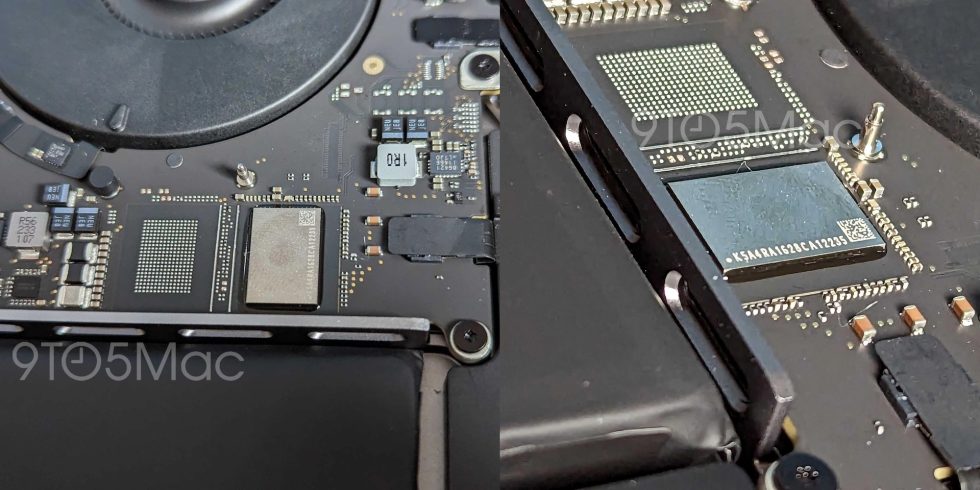
In our review of Apple's new M2 MacBook Pros, our testing showed that the laptops' internal storage speeds were higher than those in the M1 MacBook Pros they replaced. But that won't be true for all models—9to5Mac has discovered that for the entry-level models with 512GB of storage, the M2 MacBook Pro's storage is slower than that in the M1 version.
The high-level Blackmagic Disk Speed Test shows the 512GB version of the M1 Pro MacBook Pro with a 4,900 MB/s read speed and 3,951 MB/s write speed, while the M2 Pro version shows a 2,973 MB/s read speed and 3,154.5 MB/s write speed. That's a drop of 40 percent for read speeds and 20 percent for write speeds.
The difference appears to come down to the NAND flash memory chips Apple is using for its SSDs. The old MacBook Pro, per its iFixit teardown, used four 128GB NAND chips in a 512GB SSD, while 9to5Mac's M2 Pro MacBook Pro appears to use a pair of 256GB NAND chips. Fewer chips likely mean lower costs for Apple—but also fewer places for the SSD to read from and write to simultaneously, which reduces overall speeds.

This change is not entirely unexpected. There was a similar performance drop-off for the M2 versions of the MacBook Air and 13-inch MacBook Pro, which also used fewer higher-density NAND chips than the M1 versions. Because the 512GB version of the M2 MacBook Pro is still using a pair of NAND flash chips instead of just one, the new MacBook Pros still have much faster storage speeds than the 256GB versions of the M2 MacBook Pro and Air.
To put the new Pro's performance in context, those storage speeds will still register to most people as "plenty fast." The topline performance numbers are similar to what you'll get from a decent PCI Express 3.0 SSD like Samsung's 970 Evo Plus or SSD 980, or Western Digital's WD Black SN750. These drives are all either a couple of years old or made for cheaper PCs—not what you'd hope to get in a brand-new $2,000 laptop—but they're also not slow enough to cause performance problems most of the time.
reader comments
116